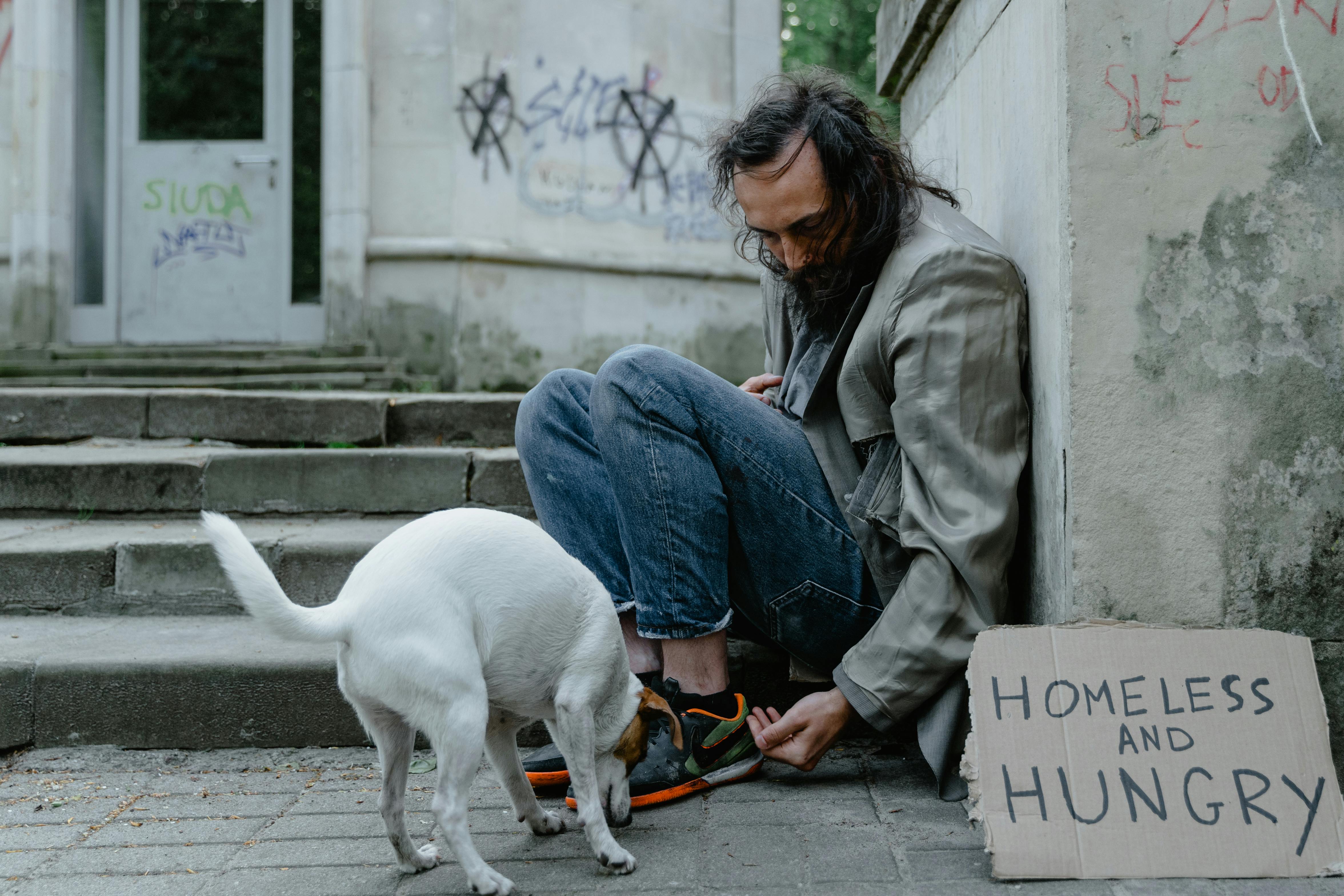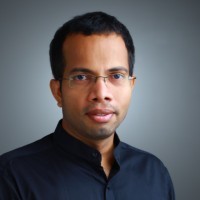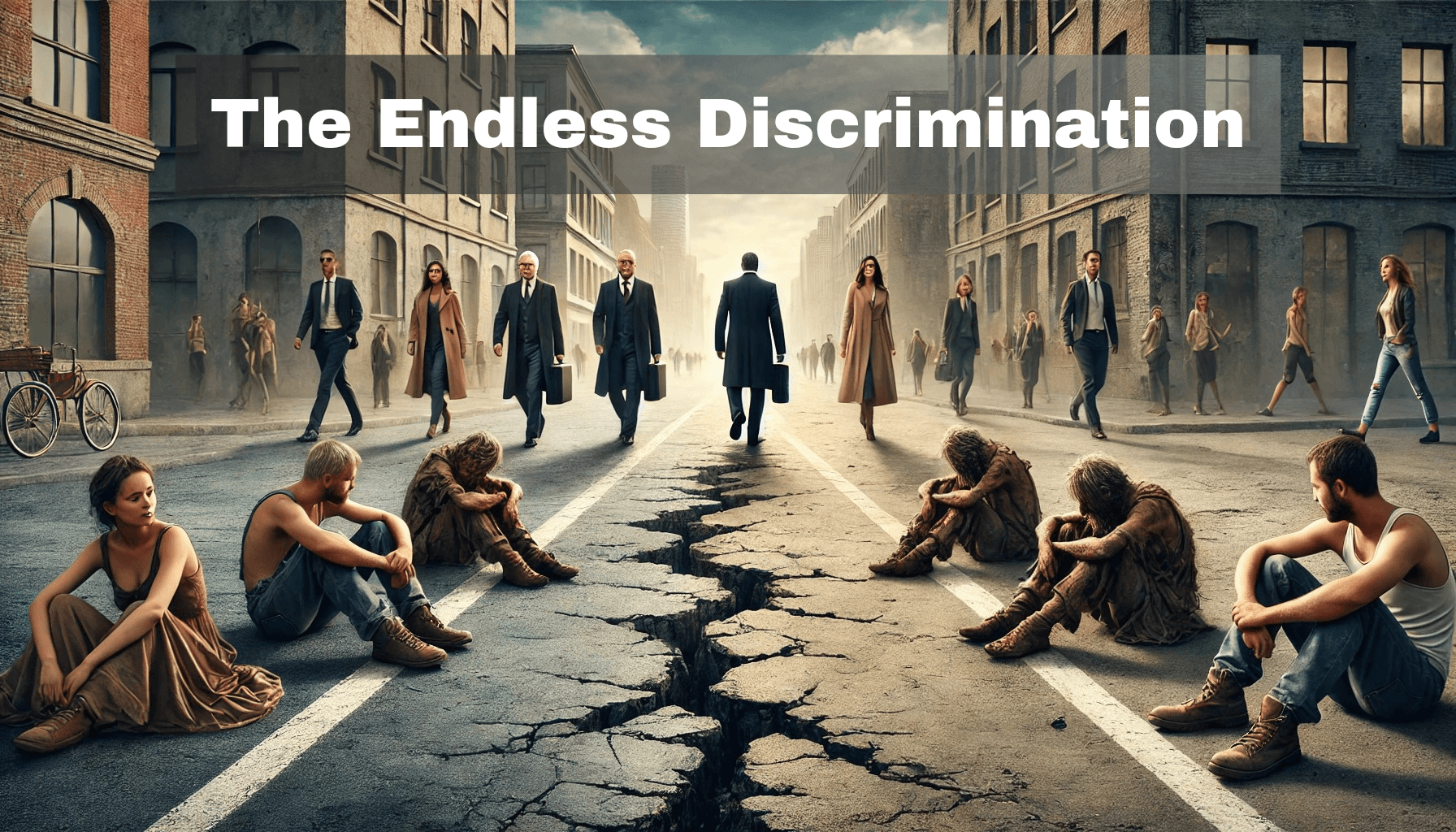The Endless Discrimination
Dec 15, 2024
No one knows the origin of discrimination that we see among people. The discrimination is inexplicable and far deeper than the discrimination of caste and creed. Since we do not know its origin, we cannot say when it will end. Perhaps it will not end until the human species becomes extinct.
Who came first? The human or the caste? Along with humans, and say with civilisation, casteism also developed. The ancestors invented the idea of enslaving another person while we boast about cognitive evolution and civilisation. Humans always seem to need someone to be in a subservient role. It is deeply ingrained in our character. No other animal exhibits this behaviour. Even if you have a lower salary, you might still hire a servant to clean your house, as there is often a need to delegate tasks to someone else.

Two days before I wrote this story, I visited a tea shop for a cup of tea. I noticed two ladies standing outside the shop begging for money. Instead of giving them money, I offered them food. Initially, they were reluctant to accept, but they eventually agreed once they entered the shop. However, the shopkeeper shouted at them, demanding that they leave. I asked him to provide the food I had offered, but he refused, saying: "Sir, this is the third time they are coming, so please don’t give them anything." I insisted, explaining that I was paying for the food, but he told them to stand outside while he packed it. I understood that when these individuals entered, other customers tended to leave, which explained his refusal. He failed to recognize that he was just one step above them in the social hierarchy. Still, he treated them unpleasantly.
They seemed no ordinary beggars but refugees. We see beggars and abuse them, but we never think that they are deprived of the facilities others in society enjoy. Poor people are often displaced by authorities when dams, airports, roads, and even private projects are built. These individuals find their way to cities and start living as beggars. We must think twice about how we treat those who are different from us.
Eventually, the two ladies received the food, opened it, and began eating on the veranda. They started talking to me, sharing that they were from Andhra Pradesh and asking for money for rations. I gave them some money, and their heartfelt smiles were a poignant reminder of their humanity.

This experience made me reflect on why people behave this way. Why are caste, creed, and money always at the forefront of our talks? We tend to classify everyone based on caste and wealth. In personal interactions, even those who stay above others in caste or financial status treat them differently. For example, at our farm, we employ individuals from a nearby tribal community. They are hardworking and loyal. I have noticed that the restaurant manager keeps separate glasses for them when serving coffee and tea. It was shocking to witness such blatant discrimination. Caste remains a persistent issue in India. Even as we strive for progress, some individuals refuse to accept support from those of different castes.
In Tamil Nadu, caste is particularly active and strong, with numerous sub-castes and even further divisions within them. Despite being from the same caste, individuals often treat one another as if they are one step down the hierarchy. They rarely intermarry or attend each other’s functions. In contrast, today in Kerala, caste is not as pronounced as in other states, but people still inquire about caste secretly.
Everyone speaks against caste, yet no one seems eager to eliminate it because it serves as the lifeline of politics in India. The upper castes often wish to change the reservation system, but only if it benefits them. They want to eliminate the privileges of those above them, not those below. This reflects our perception of caste dynamics. Interestingly, in Tamil Nadu, there are still separate roads and wells designated for different castes, highlighting the human tendency to seek a position just above others. One of the famous authors, Jayamohan, in his book 100 Simhasanagal, poignantly illustrates the painful realities of caste. Caste is not exclusive to Hinduism. It exists in all religions, though it is not officially acknowledged. Human nature seems to be such that we require someone below us to serve, whether dictated by caste or wealth. Equality exists only in legal frameworks and political speeches, not in practice.
Humans will always find reasons to fight with each other. We need a permanent enemy, whether real or imagined. Anything will suffice, but we require a slave and an enemy. This cycle will continue until the human species becomes extinct.

SAJIKUMAR
Share
Comments
